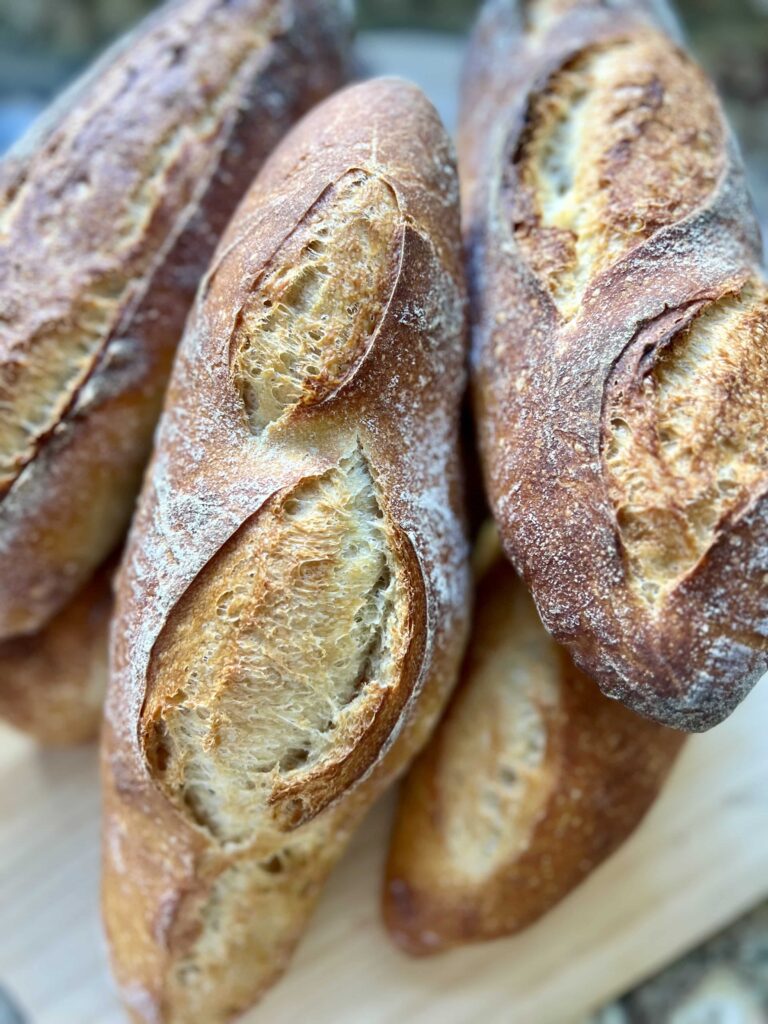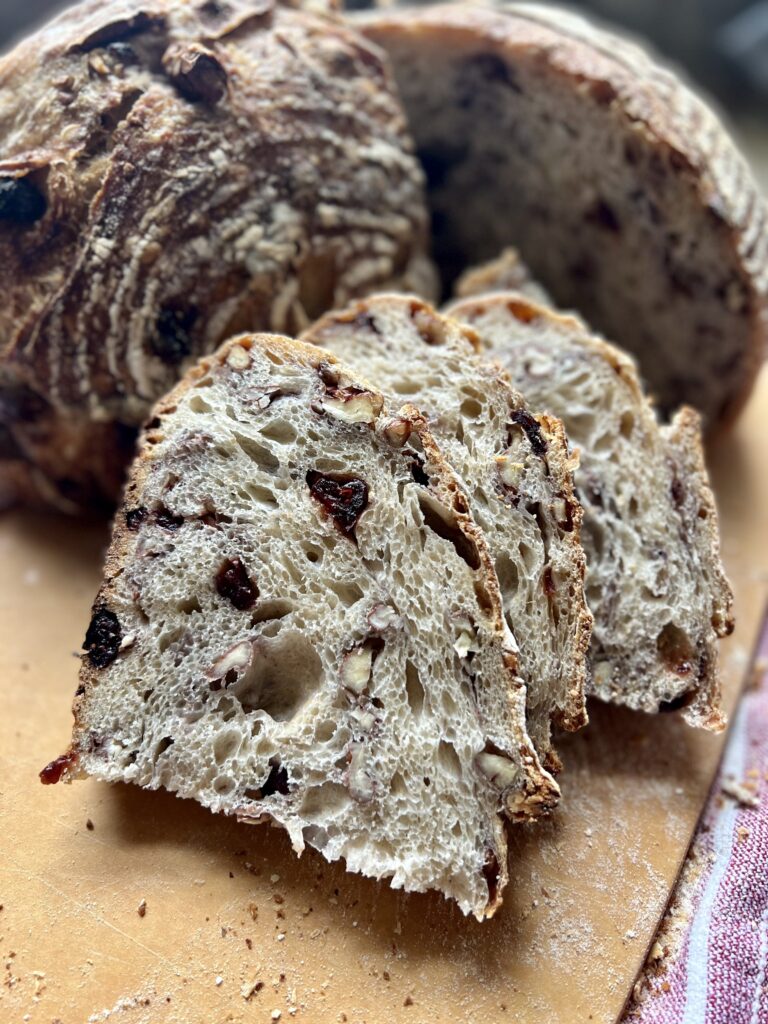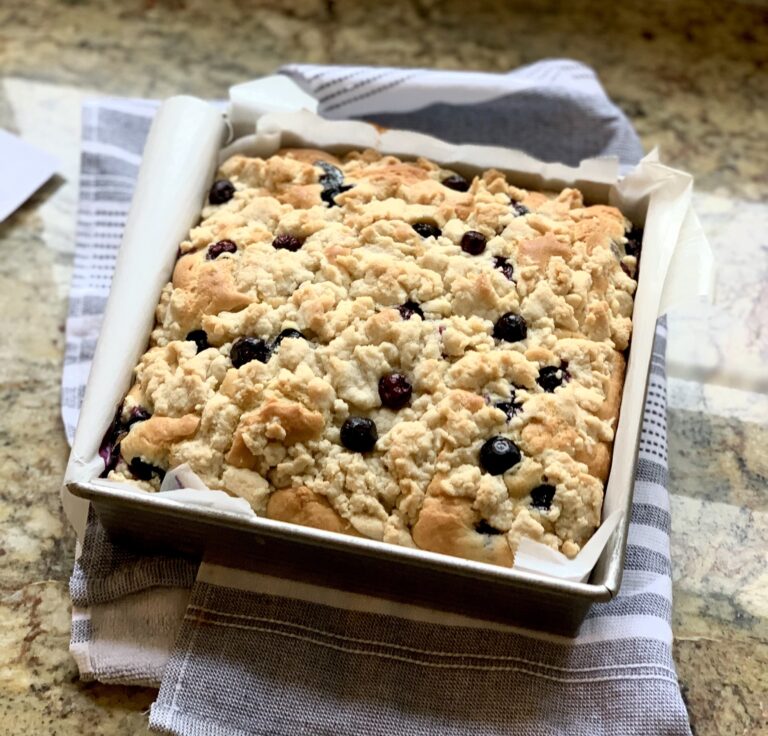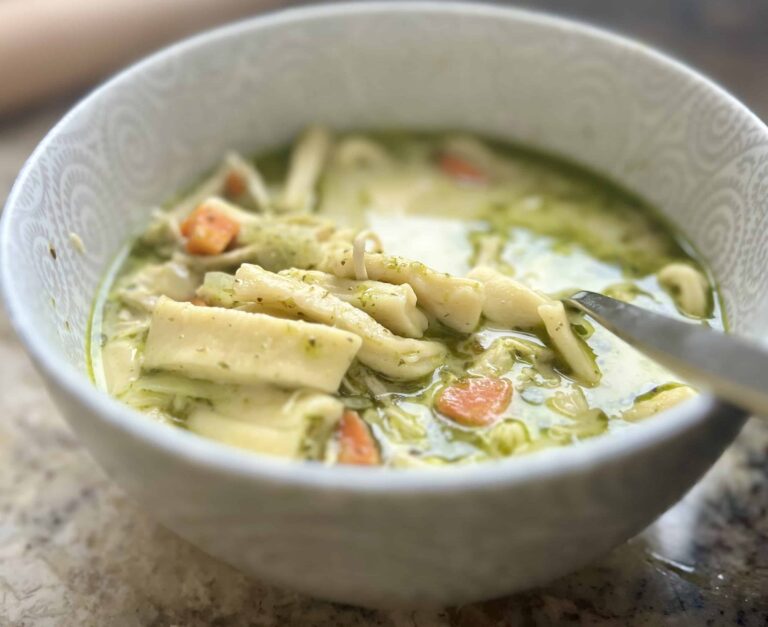Sourdough Brioche Burger Buns
This post may contain affiliate links. Please read our disclosure policy.Homemade burgers are a staple in our spring/summer dinner routines. We love grilling outside, enjoying the beautiful weather and eating a delicious burger on a homemade bun. And these burger buns, oh my goodness, they are delicious. Sturdy enough to stand up to a burger and its toppings but so soft, light, buttery and just perfection when you bite into it. Sourdough brioche burger buns are a brioche-style bun that is enriched with butter and made with 100% natural yeast sourdough. I haven’t had a better burger bun – these are my new go-to.

Why You’ll Love Sourdough Brioche Burger Buns
You are going to love these sourdough brioche burger buns, first because they taste incredible. They are pillowy soft while also being sturdy enough for a burger. You won’t be buying anymore buns from the grocery store, and I always make a little extra so I can keep a stash of these stocked in my freezer! If you are looking for a bun with not quite so much butter, these sourdough hamburger buns are another great option, but if I had my pick, the brioche version would win every time. You’re going to love them!

Sourdough Baker’s Timeline
Bread made with 100% natural yeast takes extra time. Because of this, I start my sourdough recipes with a sample schedule so I can get an idea of what the timing looks like for making this bread. Remember, this is a guideline – make it your own by tailoring it to your schedule and environment. This sample schedule assumes you are using a ripe/active sourdough starter and keeping your dough at a temperature of 78-80ºF. If your dough temperature increases, this will go faster. If it decreases, it will take longer.
| Day 1 | Mix Levain/Knead Dough/Bulk Fermentation/Cold Fermentation |
| 8:00 AM – 11:30 AM | Mix Levain 1:1:1 ratio, 3-4 hours at 78ºF |
| 11:30 AM – 12:00 PM | Mix and Knead Dough |
| 12:00 PM – 4:00 PM | Bulk fermentation at 78ºF |
| 4:00 PM – 8:00 AM | Cold Fermentation |
| Day 2 | Shape Buns/Proof/Bake |
| 8:00 AM – 4:00 or 5:00 PM | Shape Burger Buns Proofing at 78ºF – 80ºF |
| 5:00 PM – 5:30 PM | Egg Wash and Bake Buns |
Important Ingredients
- Sourdough Starter: Use an active/ripe sourdough starter (doubled in size/bubbly/mild sour aroma) to mix a stiff/sweet levain.
- Milk: Whole milk works best in this recipe, keeping the dough rich and light.
- Eggs: Four large eggs make these buns extra rich and fluffy.
- Sugar: Sugar helps activate the yeast just a bit more. It doesn’t make the buns taste sweet, it simply complements the other flavors in the buns.
- Potato Flakes: You may not be used to having potato flakes on hand. But I would recommend ordering a bag on Amazon or finding it in your local grocery to use throughout the year. Potato flakes make these burger buns so soft and fluffy and the buns will stay soft longer because of the potato flakes. I buy this brand and it lasts me a LONG time. Make sure whatever brand you buy is just the dehydrated potato – no extra fillers.
- Bread Flour: I almost always use bread flour for any bread that I am kneading. My bread flour is purchased from a local mill and is about 12.5% protein content. If you don’t have bread flour on hand, make sure to substitute some vital wheat gluten.
- Salt: Salt is important to balance the flavors and temper fermentation. Don’t leave it out.
- Butter: Softened, unsalted butter is added into the dough as it mixes, coating the gluten strands and making the dough super soft and buttery. Butter is reserved and added to the dough after the dough has already been kneaded.
- Egg Wash: After the dough is shaped and proofed, a quick egg wash is used to top the bread before baking.


How to Make Sourdough Brioche Burger Buns
Mix Levain
1:1:1 Levain (ready in 3-4 hours/same day if kept at 78ºF): This recipe calls for a levain mixed the same day before you mix the dough. It should take 3-4 hours to rise and peak if kept at 78-80ºF. Levain is ready when it has at least doubled in size, has lots of bubbles, a slightly sour aroma and is just about to start going down from its peak height. Mix together:
- 60 grams ripe/mature starter
- 60 grams warm water
- 60 grams all-purpose or bread flour
If you prefer to substitute ripe sourdough starter for the levain, this can work. Make sure your starter is 100% hydration (fed equal weights of flour and water) and is active and bubbly before using. Substitute evenly for the levain in the recipe. You can also use this post on ratios to change up the ratio of feeding the levain to make it work for you and your schedule.

Mixing Sourdough Brioche Burger Bun Dough
To make brioche burger buns, we first have to develop the gluten strands in the dough before adding in the butter. Once the butter is added, it coats the gluten strands, making it more difficult for the strands to connect and develop. To help with this process, the dough is mixed and kneaded for about 5 minutes BEFORE adding in the softened butter.
- Mixing: Add all the brioche ingredients together except for the unsalted butter. Turn the mixer on and knead for 5-7 minutes until a strong and cohesive dough is formed.
- Adding in butter: Once that dough has formed, begin adding in the butter. Butter should be added small chunks at a time until all the butter is incorporated. This can take around 10-15 minutes of extra mixing. The dough will feel fluffy and soft. When you take a pinch of it and pull up, it will break apart. Continue kneading the dough (you need a powerful mixer for this dough) until the dough has strengthened considerably and can pass the windowpane test. During this time, if the dough gets too hot from the friction of the mixer, take a break. Stick the dough in the refrigerator to cool it down and then continue mixing a few minutes later.
Windowpane Test: Stop the mixer. Pull up on a portion of the dough. The dough will stretch thinly and not tear and you will see light coming through the dough, like a windowpane. If it tears, the dough needs to mix longer.



Bulk Fermentation
Once the dough has passed the windowpane test, it will feel soft but cohesive. Take the dough out of the mixer and put it in a container to ferment. Keep the dough right around 78ºF-80ºF to begin the fermentation process. Allow the dough to rest for about 4-5 hours. If your dough temperature is cooler than 78ºF, it will need to ferment longer. You are looking for a very slight aeration of the dough during this time. It will not rise much, but it will become more aerated and strong as it ferments. If your dough temperature is higher than 80ºF, be careful. You don’t want the butter to melt out of the dough, so cool the dough down as possible.

Cold Fermentation
Sourdough brioche burger buns benefit from a cold fermentation for better flavor and color, and because cold dough is easier to handle. Cover the dough and chill it overnight. The dough can stay in the refrigerator unshaped for up to 48 hours. If you don’t want to wait overnight, you can proceed with shaping the burger buns and proceeding with the proofing – see recipe notes for details.

Shaping and Proofing Sourdough Brioche Burger Buns
Divide the dough into 8 pieces, about 180 grams per bun. This size makes a large burger bun (perfect for a 1/3 pound or 1/4 pound burger). If you want a smaller burger, cut into 10-12 pieces. Take each piece of dough and pull/pinch up the sides until it forms a ball. Roll the ball on the counter, holding your hand in a cupping shape (see video here) to seal the balls and create tension. Place the balls on a parchment-lined baking sheet, seam side down. Press down on the balls with your hand to encourage them to rise outward (not just up). Cover the pan lightly with a sheet pan cover or kitchen towel. I like to set my pan on top of a heated dough mat set to 80ºF for this long rise. Let the dough proof for about 8-9 hours until puffed up, very light and airy and at least doubled in size. If you don’t have a dough mat or bread proofer, do your best to keep your dough warm. If it isn’t warm, it will take a very long time to rise. Do NOT bake this dough if it has not shown a significant rise or else it will be dense and flat.




Baking Sourdough Brioche Burger Buns
Once the dough has risen, it is ready to be baked. Pre-heat the oven to 375ºF. While the oven preheats, whisk together an egg with a splash of water. Gently brush the tops of the brioche buns with the egg wash. This helps promote a brown crust on the top of your brioche burger buns. Sprinkle sesame seeds or everything but the bagel seasoning on top if desired. Bake buns for 28-30 minutes until baked all the way through and the brioche registers 190-195ºF. Let cool before toasting or slicing for a burger with all the fixings. Enjoy!







Amy’s Recipe Tips
This recipe makes 8 large burger buns. If you want to make smaller buns, cut the dough into 10-12 pieces to fit the size of your meat. I sometimes make kid-sized and adult-sized buns. The smaller buns may be finished baking just a few minutes before the larger ones.
Overnight Rise: If you can maintain the dough temperature right around 78-80ºF with a bread proofer or dough mat, this is a great recipe for an overnight rise. Mix up the dough in the afternoon. Let it bulk ferment for 4 hours. Shape into balls of dough and let rise overnight for 8-9 hours. Bake the following morning.
Substitutions
- Toppings: I like these buns topped with an egg wash and sesame seeds or everything-but-the-bagel seasoning. You can leave the topping off if you want plain burger buns.
- Milk: 2% milk can be used in a pinch if you don’t have whole milk.
- Potato Flakes: If you don’t want to use the potato flakes, you can leave them out. You will need to increase the flour a little bit in the recipe (I haven’t made them that way, so I don’t know an exact amount). Add flour until dough is not overly sticky and all stays on one side of the bowl. Dough should be like this BEFORE adding in the butter.



How to Store Leftovers
Leftover burger buns should cool completely and then you can put them in a ziplock bag or airtight container. Freeze until you want to use them. Then defrost and warm up or toast the bun before serving.
If you liked this, you’ll also like…
- Easy Sourdough Burger Buns
- Quick and Easy Burger Buns
- Sourdough Dinner Rolls
- Soft White Rolls with Sourdough Discard
- Sourdough Mashed Potato Rolls



Frequently Asked Questions
You can use your starter instead of the levain if your starter is ripe, bubbly and active. I prefer making a levain (ready why here), but a ripe, active and bubbly sourdough starter will work.
I do not use cup measurements when making sourdough because they are not as accurate (often wildly inaccurate depending on how you measure ingredients vs. the person who created the recipe). Instead I use weight measurements. I love this scale from Brod and Taylor.
The easiest way to make these brioche burger buns is by mixing the dough with a stand mixer. If you don’t have a stand mixer, you can mix them by hand, but it will be messy when adding in the butter and it will take quite a long time.
Yes. If you prefer working with a stiffer starter, you can use that in this dough. You may need to adjust the dough with a little extra milk or less flour if you substitute it for the levain called for in the recipe.

Sourdough Brioche Burger Buns
Equipment
Ingredients
Levain, 1:1:1 (ready in 3-4 hours/same day if kept at 78ºF)
- 60 grams sourdough starter ripe, bubbly, active
- 60 grams bread flour all purpose works too
- 60 grams water
Sourdough Brioche Burger Buns
- 160 grams levain ripe, bubbly, active
- 200 grams whole milk
- 25 grams potato flakes
- 4 large eggs
- 60 grams granulated sugar
- 15 grams salt
- 680 grams bread flour
- 113 grams unsalted butter, softened 8 Tablespoons
Egg Wash
- 1 medium egg
- splash of water
- sprinkle of sesame seeds or everything-but-the-bagel seasoning for topping
Instructions
Levain, 1:1:1 (ready in 3-4 hours/same day if kept at 78ºF)
- Mix together ripe, active sourdough starter with bread, flour and water until completely incorporated. Cover and let rise until doubled in size, bubbly and peaked.
Sourdough Brioche Burger Buns
- Add Butter: Cut the butter into 8-12 chunks. Butter should be firm but soft enough to leave a dent when you press your finger into the butter. Turn the mixer on and add chunks of butter into the dough a little at a time. Continue adding chunks of butter until all the butter is added and incorporates into the dough.
- Knead until Windowpane: Continue kneading the dough on medium speed for 10-15 minutes (this will depend on your mixer and your dough) until the dough passes the windowpane test. To check for windowpane: Stop the mixer. Take your hands and pull up on a portion of the dough. At the beginning stages of kneading the dough, the dough will break as soon as you start to stretch it. As the dough kneads and the gluten strands develop, the dough will stretch thinly without tearing. You will know the dough is finished kneading when the dough does not tear when pulled and you can see light through the dough, like a windowpane.A word of caution: As you knead the dough, the friction from the mixer can heat up the ingredients in the bowl. It is important that the dough doesn't get too warm or else the butter will begin to melt and separate from the dough. If you notice this beginning to happen, take a break, stick your dough in the refrigerator to cool down and then continue kneading after the dough cools a little bit.
- Bulk Fermentation: At this point the dough will be soft but also cohesive. Dump the dough into a container and cover. Set the dough in a warm, 78-80ºF place for 4 hours. Take the temperature of the dough as needed to make sure the dough temperature stays right around 78ºF. This temperature is the optimal fermentation. If your dough temperature is cooler than 78ºF, it will need to ferment longer than 4 hours.
- Overnight Refrigeration (Cold Fermentation): Stick the covered dough in the refrigerator overnight or up to 48 hours.
- Shape Burger Buns: Line a baking sheet with parchment paper. Take the dough out of the refrigerator. Separate the dough into eight equal-sized pieces, about 180 grams per ball of dough. Take each piece of dough and pull/pinch up the sides until it forms a ball. Roll the ball on the counter, holding your hand in a cupping shape (see video here) to seal the balls and create tension. Place balls seam side down on the baking sheet. Take your hand and press down on the balls to flatten them a little bit and encourage them to grow out as well as up.
- Proof: Place the shaped burger buns in a warm place to rise until doubled in size and light and airy. I proof my dough on a dough mat with the temperature set at 80ºF it takes about 8 hours for the dough to rise.
- Bake: Pre-heat the oven to 375ºF. Whisk together one medium egg with a splash of water. Gently brush the egg wash on top of the risen dough. Sprinkle with sesame seeds or favorite seasoning. Bake for 28-30 minutes until the buns are baked through and the internal temperature is 190-195ºF. Let cool before slicing. Enjoy!







These are so soft and delicious! 😍😋
Can I use potato starch or does it need to be flakes?
I think potato starch would also work.
My 2nd Amy recipe—the 1st being the BEST blondies ever! These are AMAZING burger buns. I just used one for a chicken pesto “sandwich.” OMG Amy!!! Thank you so much! I only have a 5 qt Kitchen Aid mixer, so I had to divide the dough, do 2 different kneadings, & triple the mixing time. Plus I cold fermented 48 hrs.
I tripled the kneading time bc the Kitchen Aid kneads on 2 (as you know). This recipe is so good Amy, I’m thinking to invest in the Bosch mixer you use. I’m going to thank you also by taking your sourdough class.
You are so sweet. So glad you loved these brioche buns!
So glad you loved these! Thanks for sharing 🙂